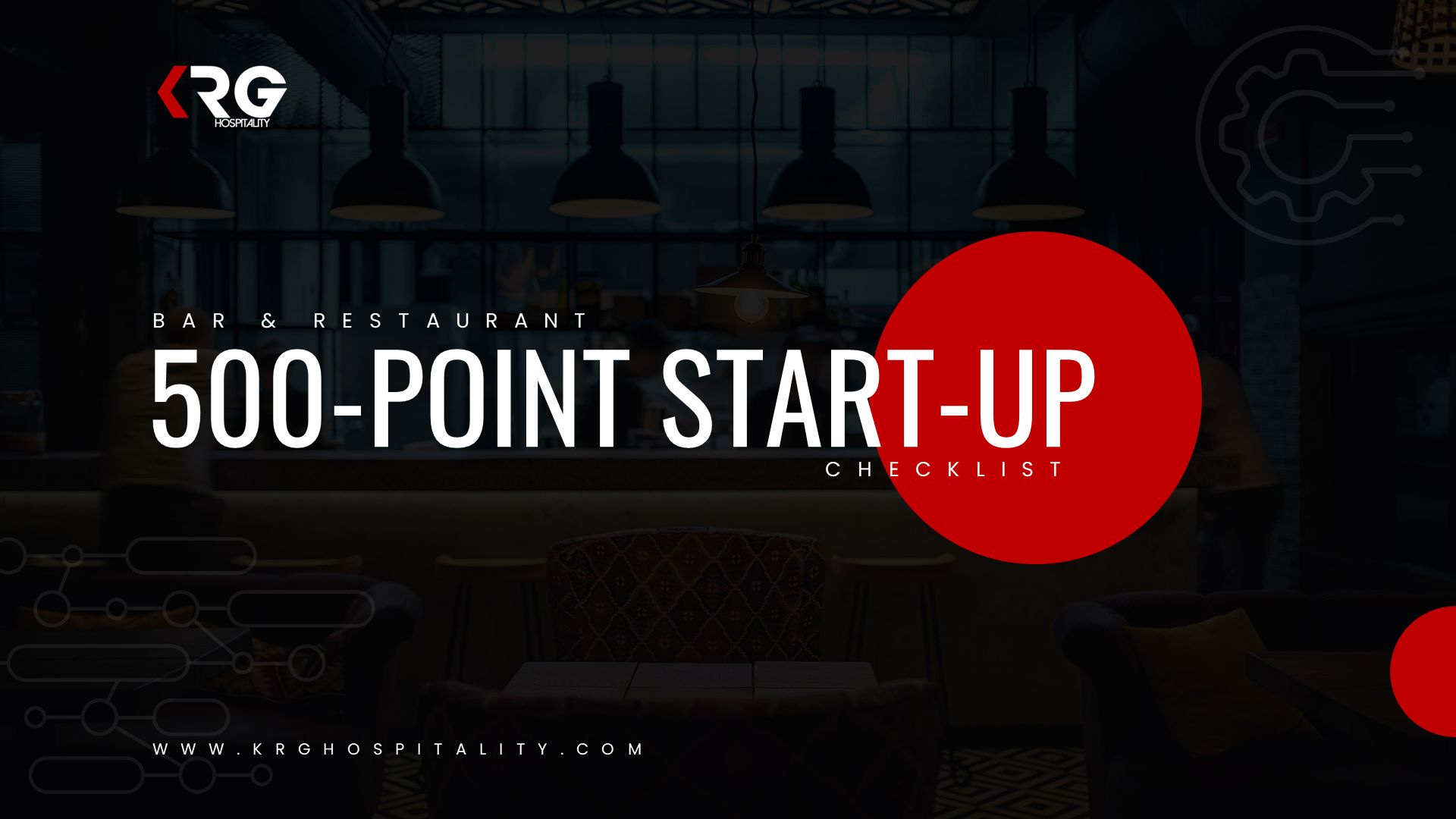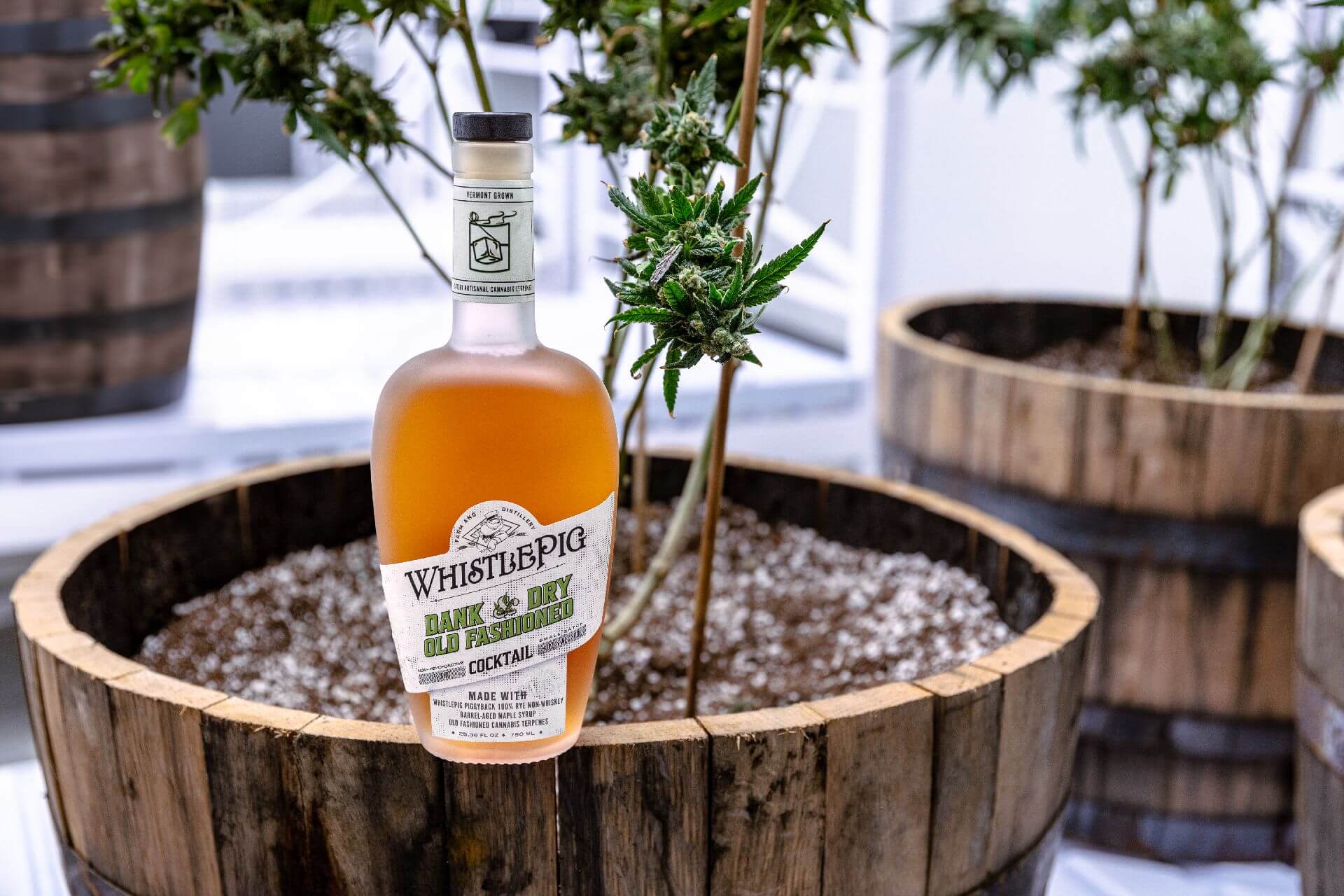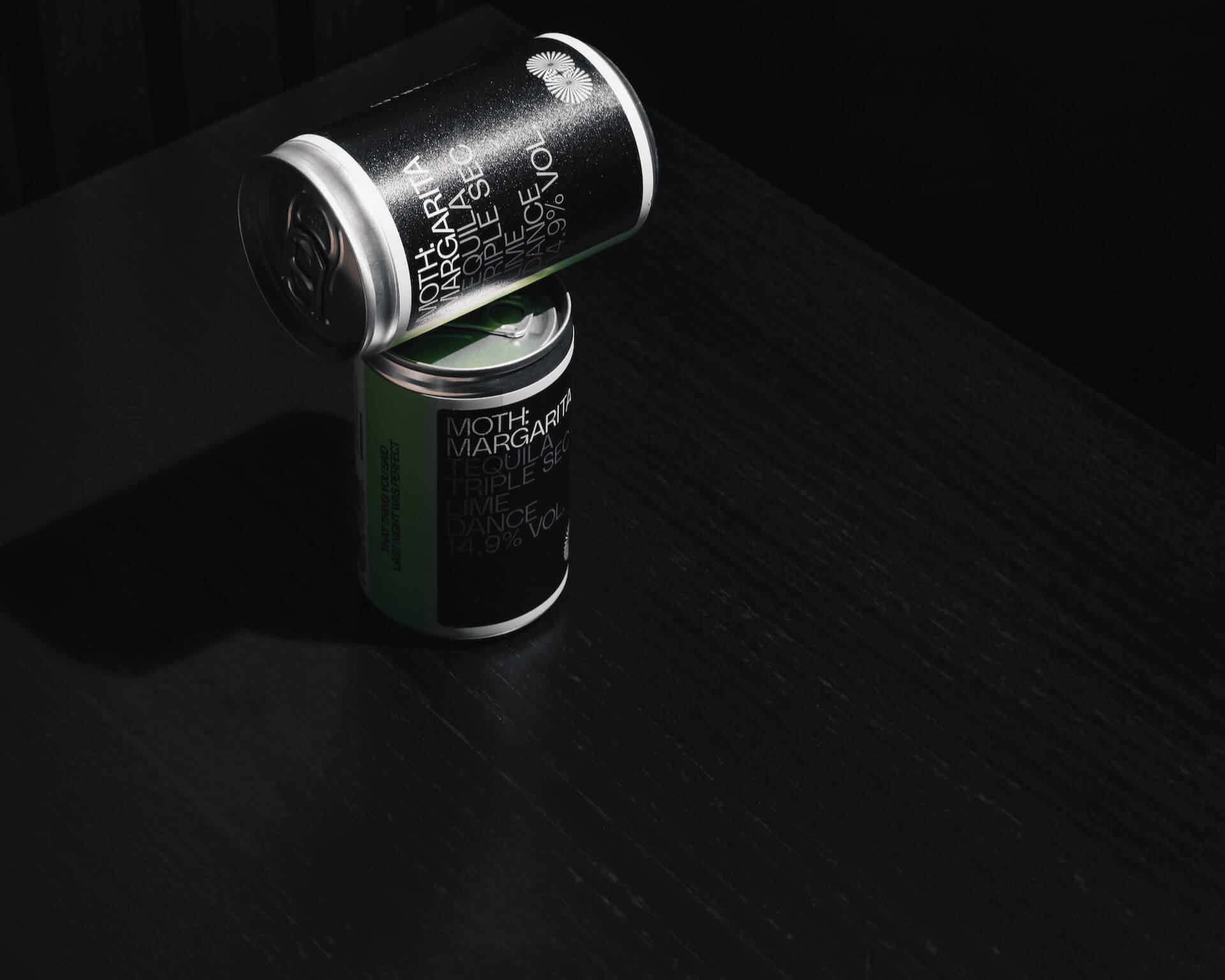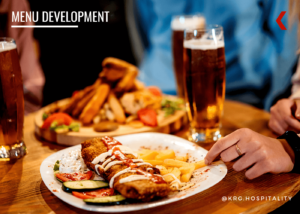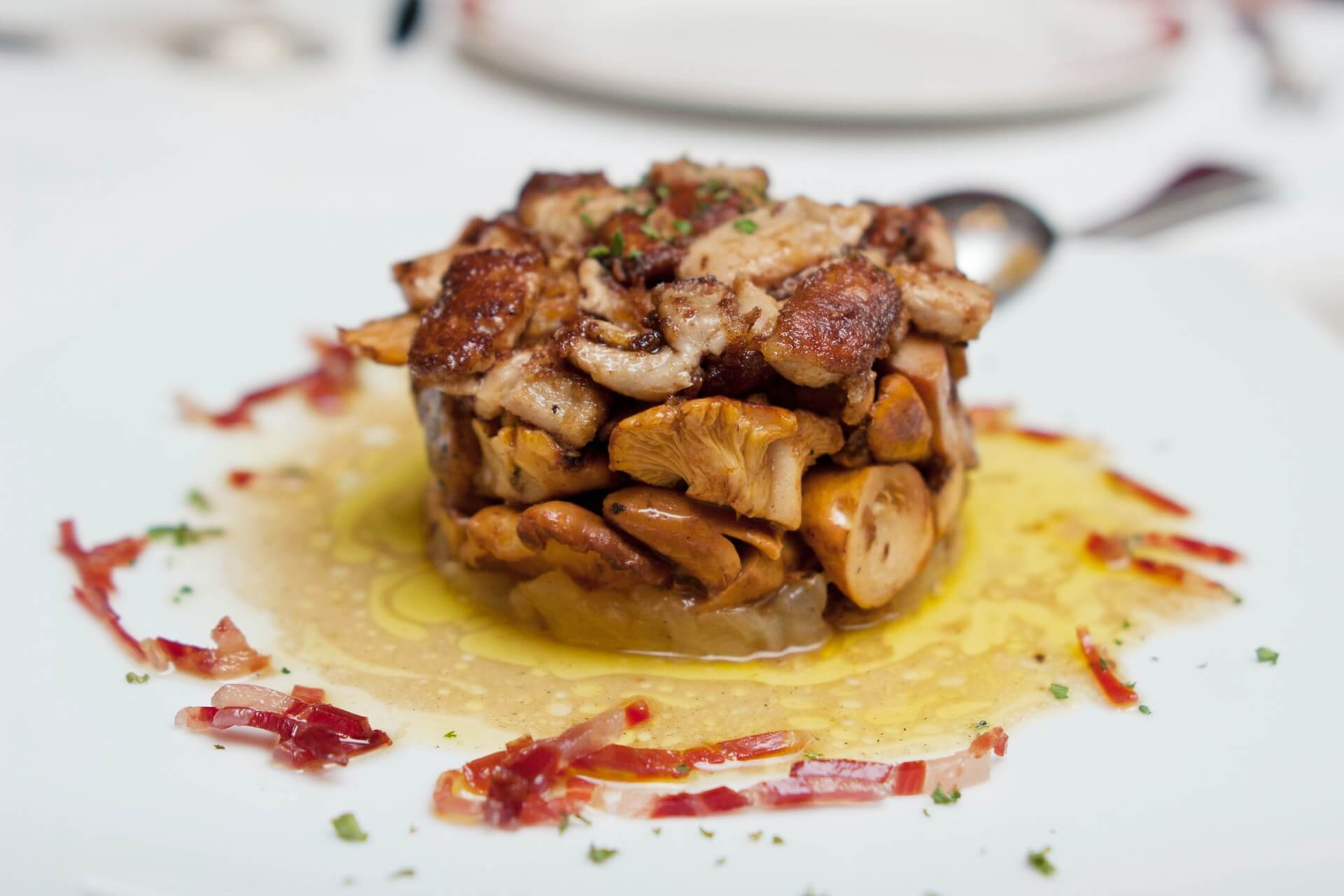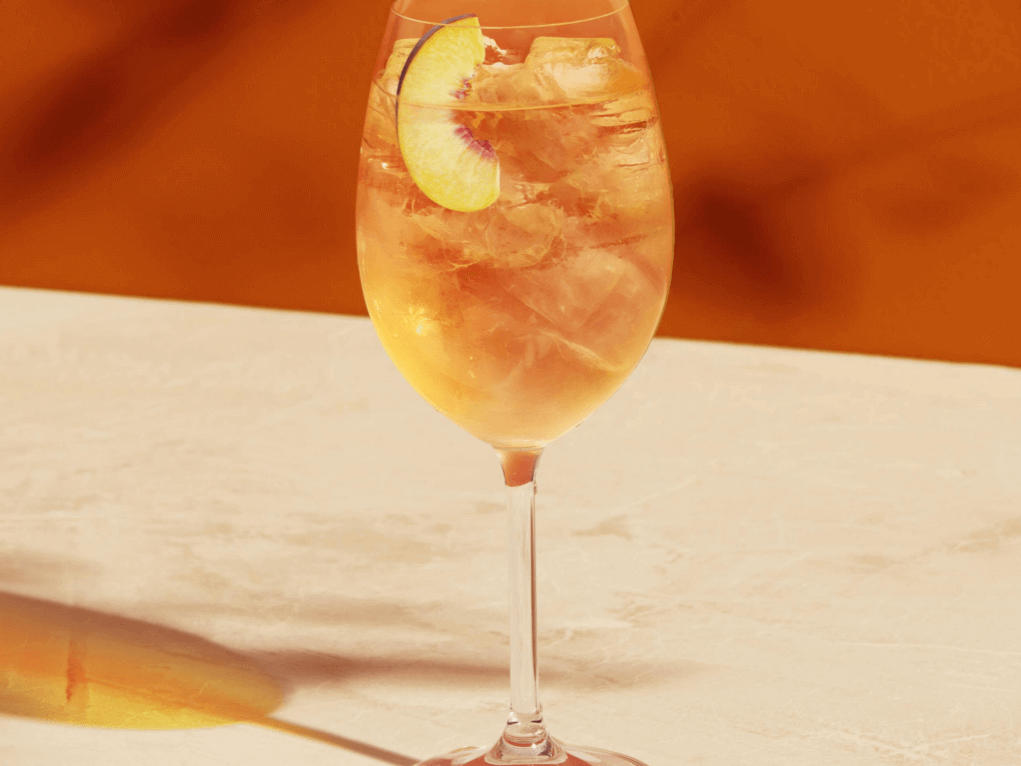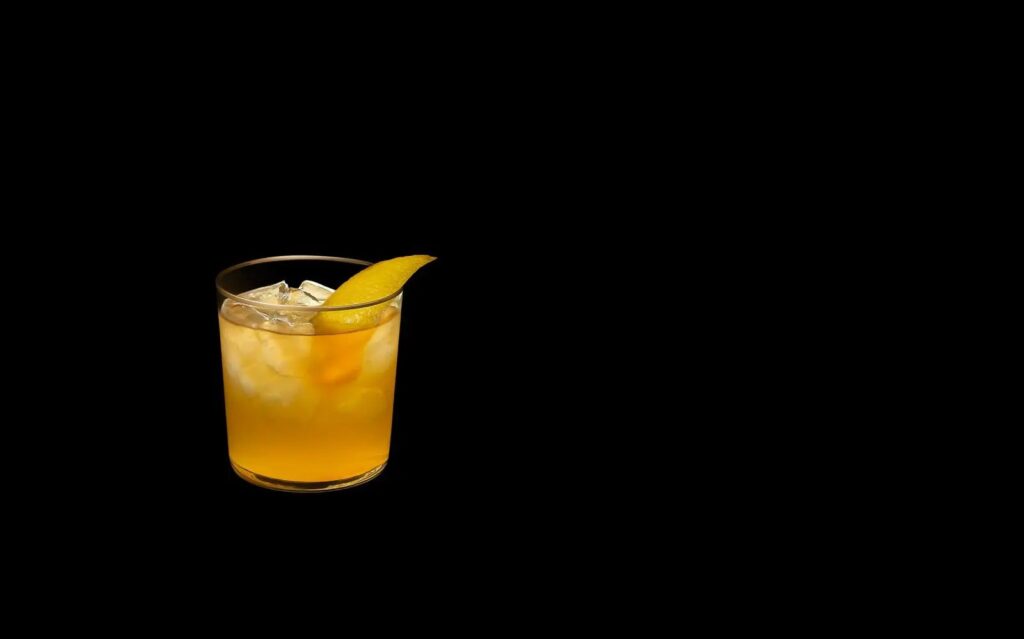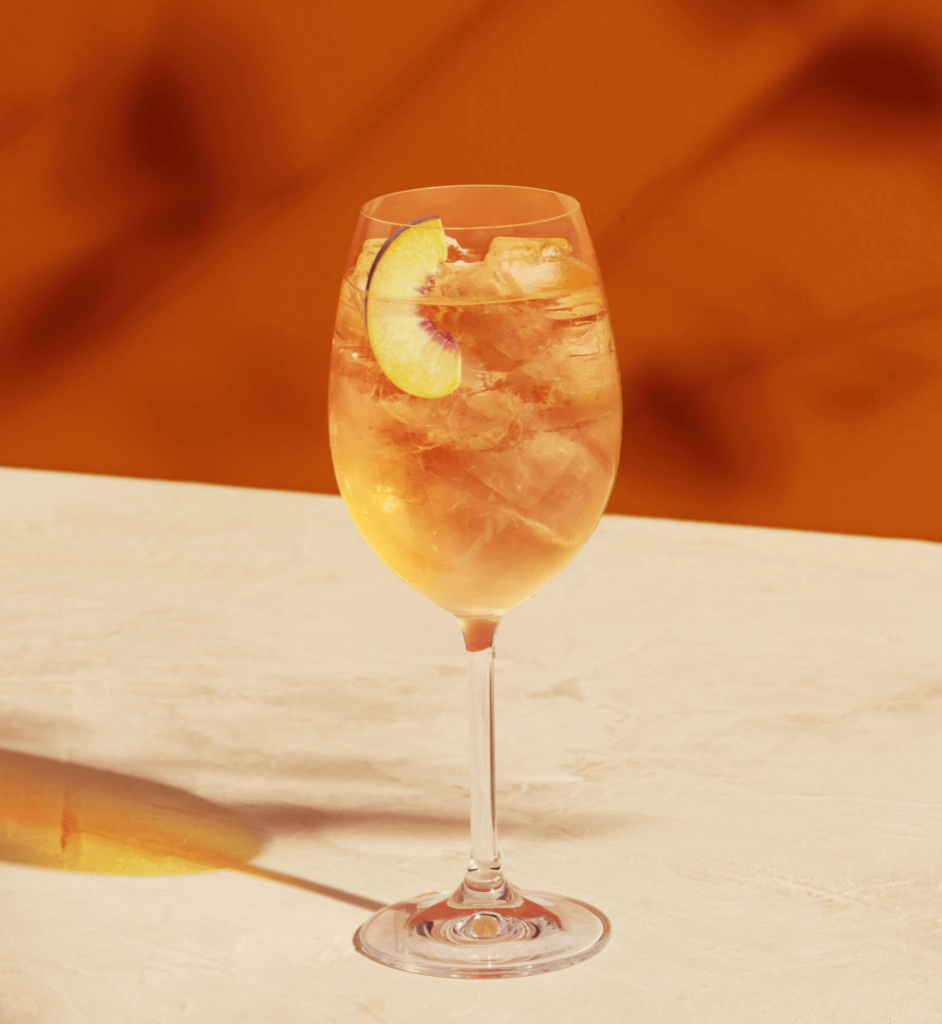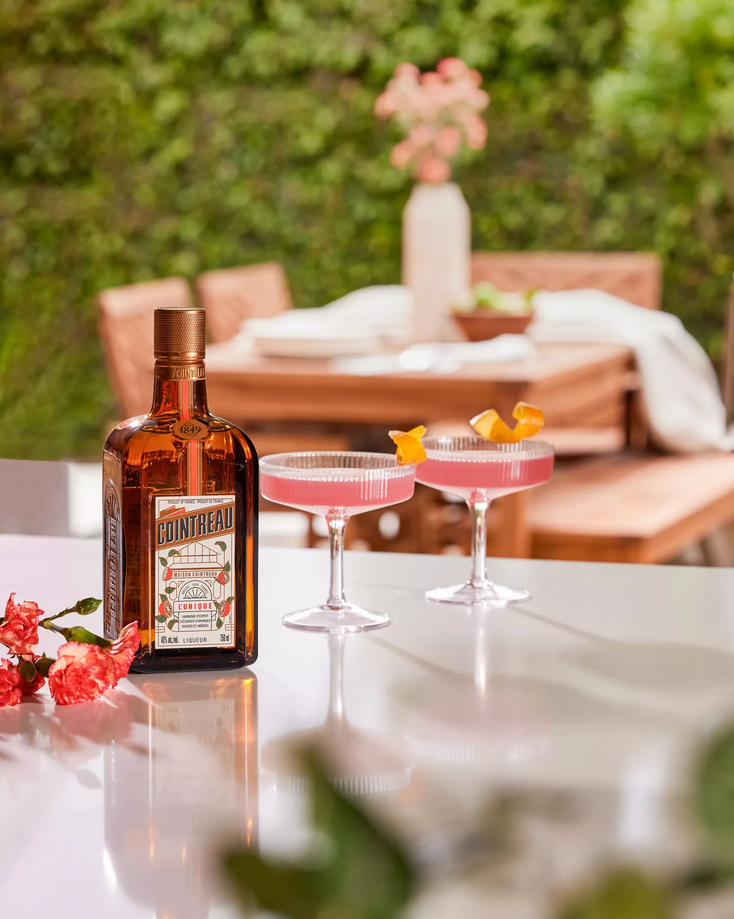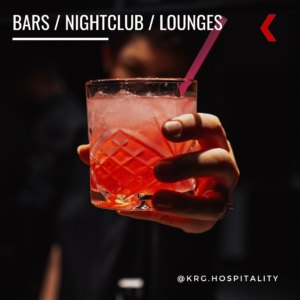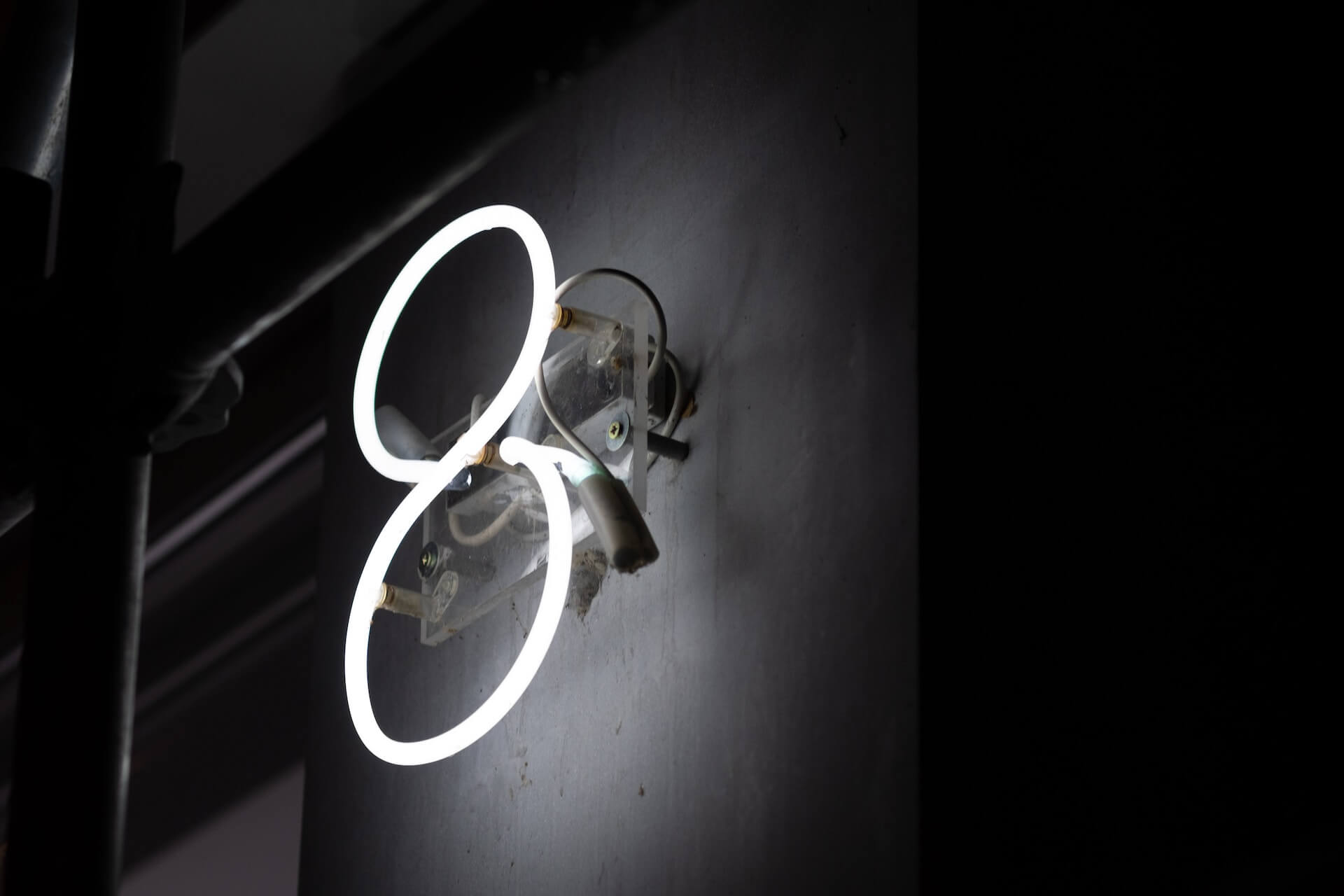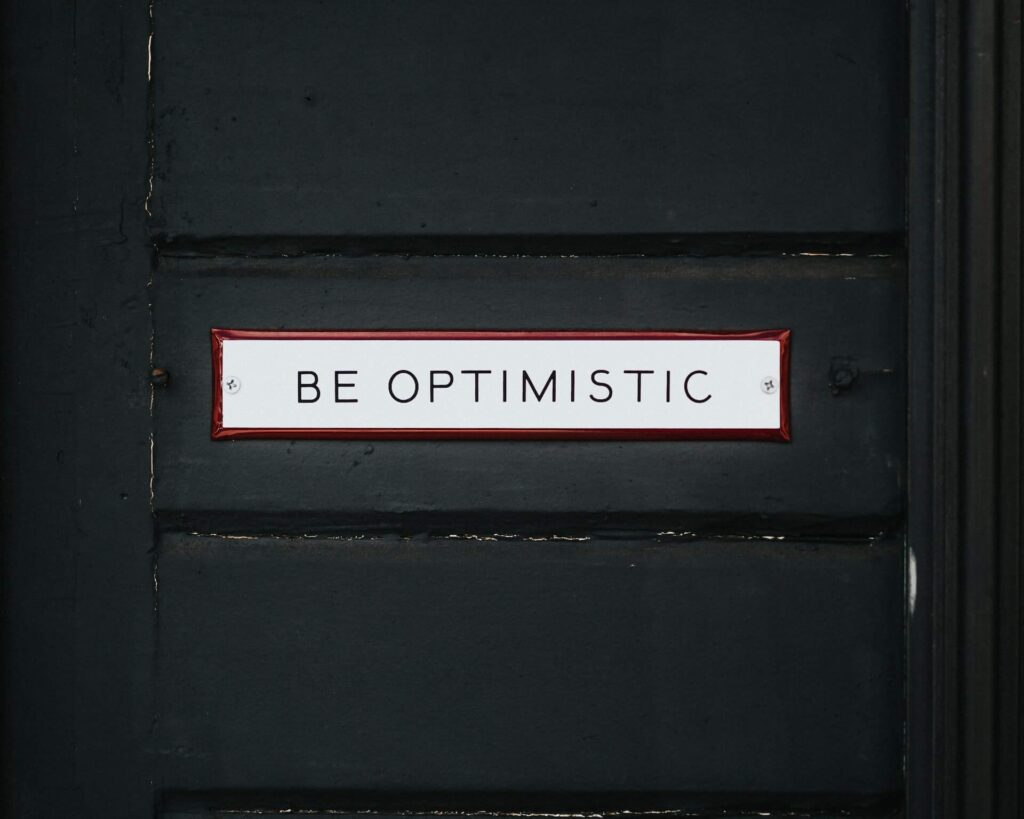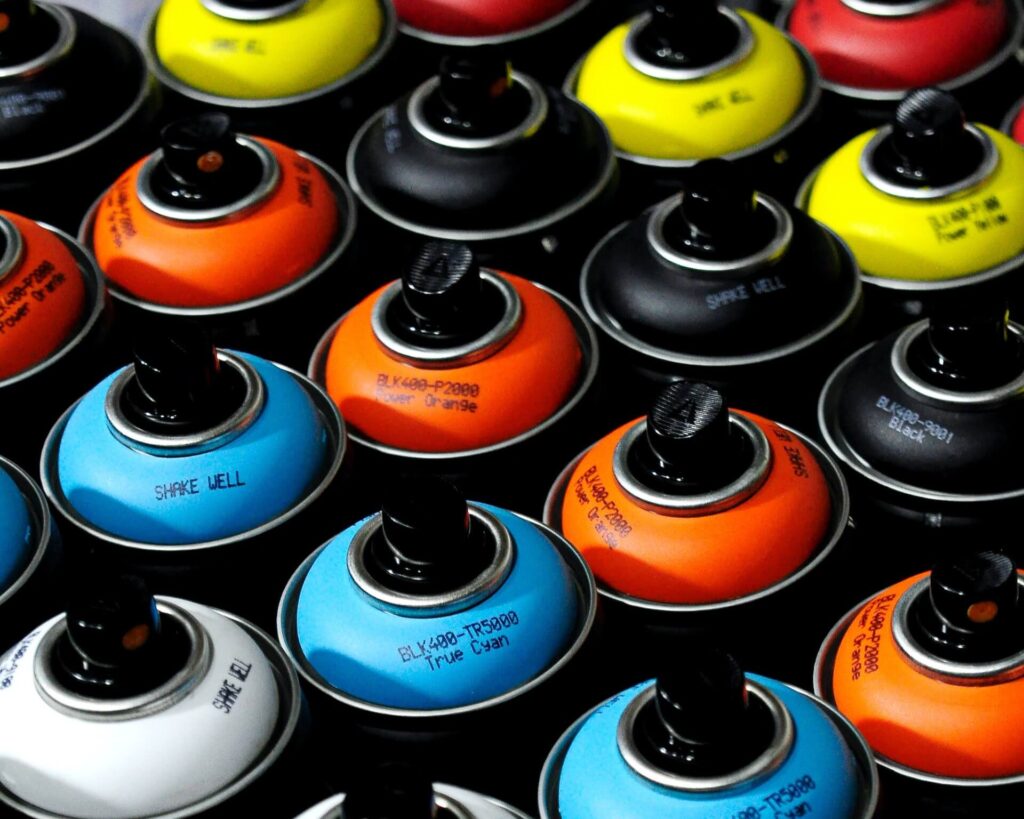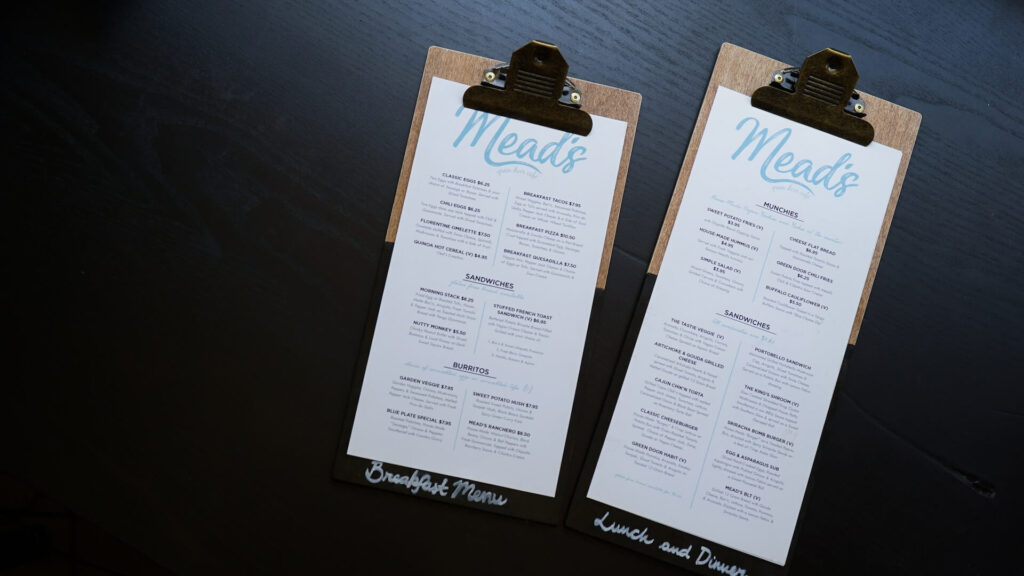2023 KRG Recap: Top 10 Articles
by David Klemt

Here it is! The final roundup of 2023, a collection of the top ten articles spanning all categories, including news, operations, and F&B.
Unlike our previous three year-end roundups, some of these articles aren’t from 2023. As an example, one of our most-read articles is from 2022, and it’s about the happiest provinces in Canada.
We’re humbled and grateful that you continue to view us as a trustworthy source of hospitality industry analysis, advice, and news. We look forward to serving you further in 2024.
Cheers!

Raise the Bar: The 3 Ps of Hospitality
Nightlife, bar, and cocktail experts Mia Mastroianni, Phil Wills, and Art Sutley want operators to focus on what they call “the Three Ps.”
The engaging trio shared their trio of Ps recently in Las Vegas at the 2023 Bar & Restaurant Expo.
So, what are the Three Ps of hospitality? People, Place, and Product. Operators who pull the threads tighter on each of these crucial elements will be well on their way to improving operations and the guest experience.
People
Remember all the way back to a week ago when I shared Mastroianni, Wills, and Sutley’s thoughts on service versus hospitality? Consider the first P a deeper dive into that topic.
Operators need to focus on two categories of people who help their businesses succeed: their teams and their guests.
Addressing the former, the trio feels that operators are centering a disproportionate amount of their attention on guests in comparison to staff.
“We’re not lacking for people who want to work in the business and are outperforming other industries, but we’re not focusing on staff like we focus on guests,” says Wills. “Treat everyone with respect, including through the hiring process. If you don’t engage your staff, you won’t retain them. You need to show them they can grow in your business.”
According to Sutley, 89 percent of operators say that labor costs present a “significant challenge.” It follows, then, that committing to treating staff with respect and nurturing their careers isn’t just the right thing to do, it’s smart business.
Look for people with passion, those you can motivate to go above and beyond so you’re not stuck with a team full of space-fillers who are just after a paycheck, suggests Mastroianni.
Of course, operators and their teams must also focus on providing exceptional service and experiences to guests.
“Treat ever guest like a pearl in an oyster,” advises Wills. “They’re the pearl, we’re the oyster. We need to ‘protect’ them.” Anything less, cautions Sutley, and guests won’t return.
For the rest of the Three Ps, click here.
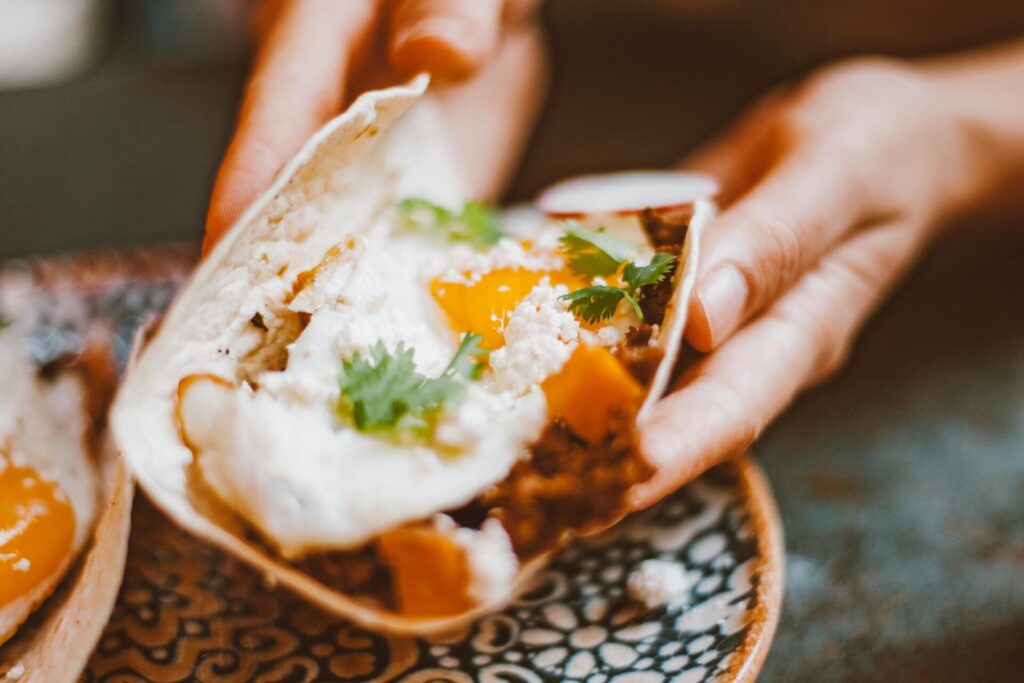
Canadian Trends 2023: Technomic
Restaurant, bar, and hotel operators will find this year’s data-driven trend predictions from Technomic for 2023 insightful.
Interestingly but perhaps not surprisingly, some operators may be looking beyond North America for inspiration.
Per Technomic, Central and South American cuisines could influence menus in Canada this year. Other food trends that might take hold are “retro” health items, and all manner of pickled foods.
Of course, not every Canadian trend prediction involves F&B. According to Technomic, tech and the guest experience will play important roles.
To review last year’s Technomic predictions, click here. Now, let’s jump into Technomic’s 2023 predictions.
Guest Experience
Certainly, the guest experience should always be top of mind for operators, their leadership teams, and their staff.
In this instance, Technomic isn’t suggesting that the guest experience in general will be a trend. Obviously, with as important as it is to the success of any business, it’s a cornerstone.
Rather, Technomic predicts that guests will continue to feel the need to rein in their spending due to ricing costs and prices. However, the foodservice research firm also believes there’s still heavy desire for social interaction.
So, both those financial and social influences translate to the following: overdelivery.
Operators and their teams must ensure they position their brands well; make guests feel special every visit; and really dial in the guest experience. Specifically, Technomic suggests focusing on younger generations and menus with at least a couple specialty items that aren’t easy for a guest to replicate at home.
In other words, do whatever it takes to entice guests with memorable experience and quality menu items, and keep them coming back for more.
Follow this link to continue reading.
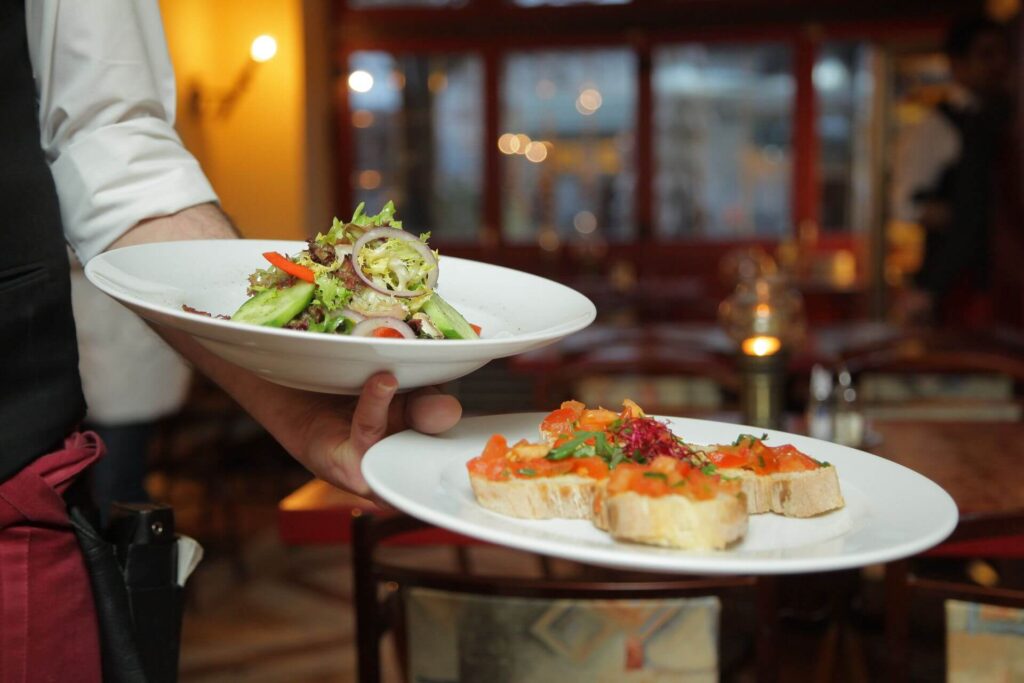
Just.Safe.Food. and More Alternatives to ServSafe
ServSafe, the National Restaurant Association‘s food safety training program, isn’t the only food handler training game in town.
Certainly, the program is the most well known in our industry. However, it’s fair to say that ServSafe is closer to infamous than just ubiquitous due to a New York Times article from January.
While it’s the most recognizable of the food safety programs, it’s not the only one. Although, ServSafe’s omnipresence likely gives many the impression that it’s ServSafe or nothing.
There are, however, alternatives to ServSafe. In fact, one challenger was announced a day after the explosive New York Times article that thrust ServSafe into a spotlight the NRA probably isn’t enjoying. (After all, one result of that article was a letter from six US senators demanding answers from the NRA about ServSafe by March 3.)
At any rate, the newest alternative to ServSafe comes from One Fair Wage. The program is Just.Safe.Food. and costs just $10. (As a reminder, ServSafe costs $15.)
For that $10, Just.Safe.Food. gives an individual three attempts to pass their exam and unlimited access to training materials. Additionally, One Fair Wage (OFW) says profits they raise from the program will go toward advocating for restaurant workers.
OFW, as many in the industry know, is owned and operated by restaurant workers. Two cornerstones of the organization’s mission are increasing the minimum wage, and ending the tip credit. OFW is also attempting to convince lawmakers to stop accepting donations from the NRA.
Basically, OFW and the NRA are—and it appears always have been—at odds with with one another.
To learn more, click here.

These are the Happiest Provinces in Canada
If you’re wondering which province in Canada is the happiest, Statistics Canada has the answer—and the happiest may surprise you.
Of course, those who live and work in the happiest province won’t find it shocking. After all, they’re largely happy to be there.
However, if you expect the happiest province to be the home of Toronto, Vancouver, Montreal or Canada… Well, you’re in for a surprise.
Earlier this week we took a look at the happiest cities and states in America. Congratulations Fremont, California, and Hawaii, respectively. To learn where 181 other cities and 49 states rank, please click here.
The Happiness Survey
Or more accurately, the “life satisfaction” survey. For this survey, that’s what Statistics Canada reveals: life satisfaction.
Interestingly, the survey is very simple. Apparently, Statistics Canada simply asked participants to rate the satisfaction of living in their province, zero through ten. For this survey, zero is least satisfied, ten is most.
Ages 15 through 75 (and older) were able to participate. The survey was also broken down to gauge the satisfaction of men and women.
Before we jump into the breakdown of province satisfaction or happiness, some good news. Reviewing the Statistics Canada data, most participants across all age groups are happy. In fact, age groups 65 to 74 and 75-plus appear to be happiest.
On the other side, ages 15 to 54 had the most people who rated their life satisfaction between zero and five. Even so, just over 20 percent of survey respondents rated their satisfaction a five or less.
So, on the whole, Canadians seem satisfied or happy with their lives, regardless of the province in which they live. Personally, I find that to be great news.
Click here to keep reading.
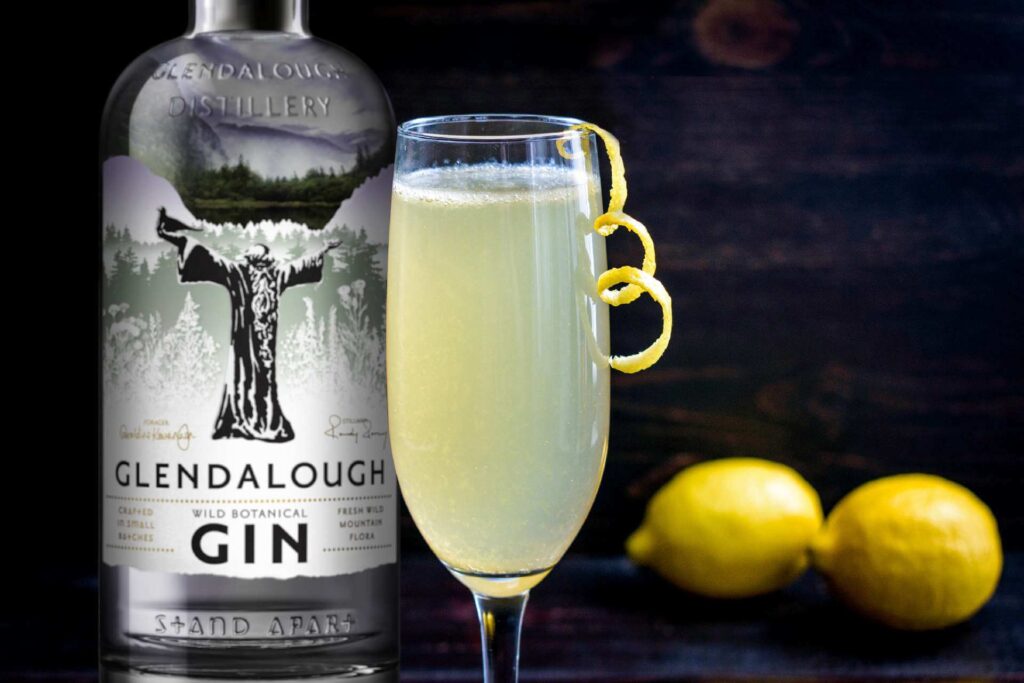
8 Glendalough Distillery Cocktail Recipes
Offer your guests something different for your St. Patrick’s Day promotion with Glendalough Distillery cocktail recipes.
Without a doubt, you should have plenty of the expected Irish whiskeys on hand. However, Glendalough Distillery Double Barrel, Pot Still, Wild Gin, and Rose Gin are extraordinary Irish whiskeys and gins.
Each spirit the distillery crafts honors the art of Irish distillation, a craft that stretches back centuries. What’s more, each whiskey Glendalough crafts is single malt—there are no light-bodied blends in their lineup.
To learn more, check out episode 71 of the Bar Hacks podcast with Glendalough Distillery co-founder and national brand ambassador Donal O’Gallachoir.
Sláinte!
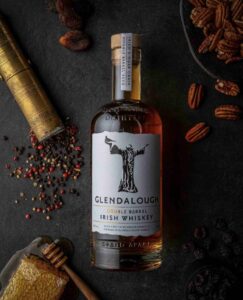
The Lough Inn
This highball is made with Glendalough Double Barrel, a single-grain Irish whiskey aged in ex-bourbon barrels before being finished in Oloroso sherry casks.
- 2 oz. Glendalough Double Barrel Single Grain Irish Whiskey
- 1 oz. Spiced honey syrup (see note)
- 1 oz. Fresh lemon juice
- Soda to top
- Lemon wheel or slice to garnish
- Mint leaf to garnish
- 1 cup Honey for spiced honey syrup
- 0.5 cup Water for spiced honey syrup
- 4 Cinnamon sticks for spiced honey syrup
- 1 pod Star anise for spiced honey syrup
Add ice to a highball glass, then add first three ingredients. Top with soda water. Garnish with lemon wheel or slice and freshly torn mint leaf.
For spiced honey syrup: Add honey, water, cinnamon sticks, and star anise to pot. Bring to a boil, then stir. Strain into container.
For more Glendalough Distillery recipes, click here.
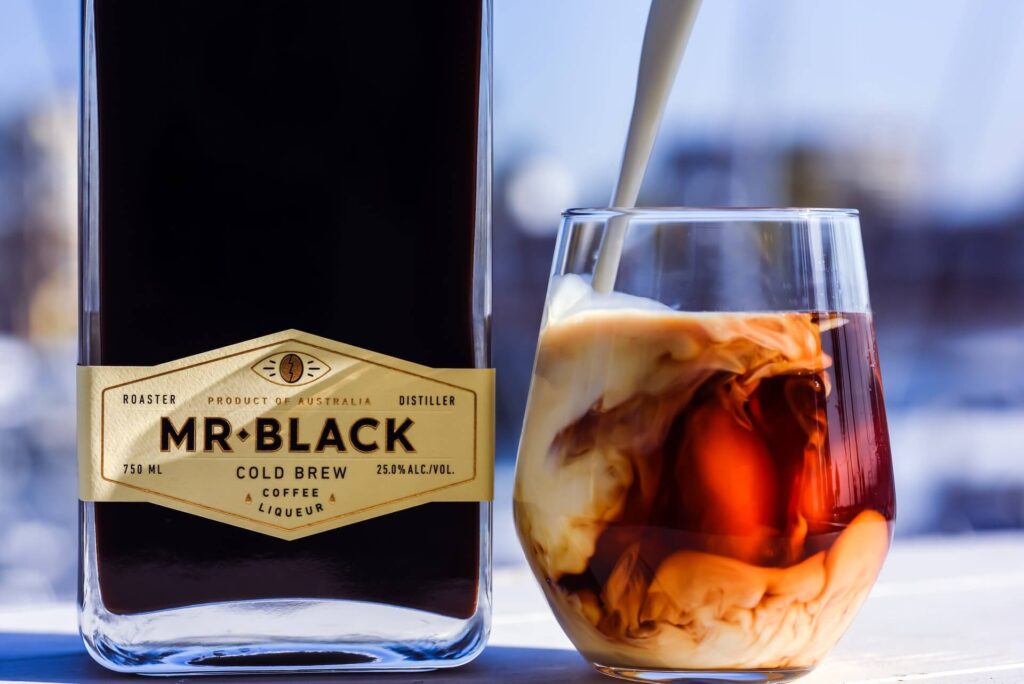
7 Coffee Liqueurs You Need to Know
Whether you and your bar team are making Espresso Martinis, riffing on classics or creating something new, consider these coffee liqueurs.
National Espresso Martini Day takes place on Tuesday, March 15. Leading up to this bar holiday, the cocktail is experiencing yet another resurgence.
In fact, this cocktail more than any other seems to maintain an enviable rate of “surging back” in popularity. Maybe it’s time to just admit that it’s a modern classic people love to hate…but still order and enjoy.
Below are seven coffee liqueurs that shine in an Espresso Martini, Old Fashioned, Negroni, Irish Coffee, or any number of rich, flavorful cocktails. Cheers!
Mr. Black
Most of the reviews out there place Mr. Black at the top when it comes to coffee liqueurs. Once you’ve sipped it neat, you understand why. The coffee flavor is outstanding, and that should come as no surprise. After all, Mr. Black is crafted in Australia, a country with a rich coffee culture.
Additionally, Mr. Black occasionally releases special batches. In the past, the brand has produced Single Origin Ethiopia, Single Origin Colombia, and collaborations with WhistlePig and St. Ali Coffee Roasters. They also have a coffee amaro available.
Grind Espresso Shot
You really can’t go wrong making an Espresso Martini with an espresso liqueur. Grind Espresso Shot gives Mr. Black a run for their money in the coffee liqueur showdown.
This blend of Caribbean rum, espresso, coffee, and coffee extract that shines in just about any cocktail.
Click here for more coffee liqueurs to consider adding to your inventory.
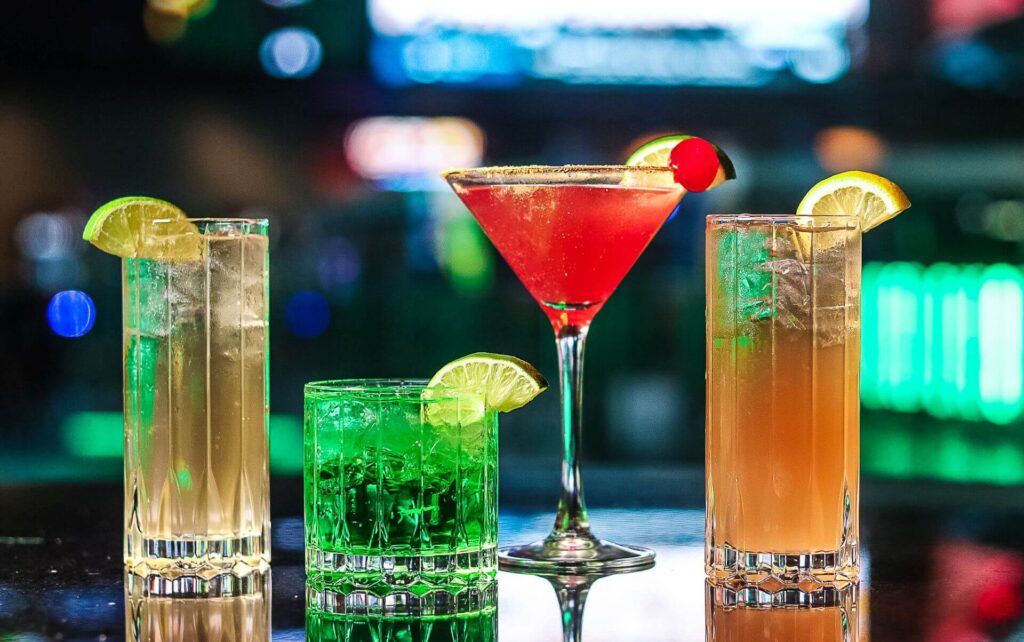
Ocean Casino Resort Offers Big Game Cocktails
Ocean Casino Resort, Atlantic City’s award-winning oceanfront casino and resort, is ready for the Big Game with four cocktails that team with the theme.
Now, by “Big Game,” we all know what I’m talking about. We know the sport, we the know the league, and we know precisely which game is under discussion.
However, due to very “enthusiastic” attorneys, we also have to talk like we’re spies or actors in a mob movie. We wouldn’t want to tempt anyone to file a lawsuit now, would we?
And I’m going to encourage you to continue following this childish way of speaking about the Big Game. When you’re promoting your Sunday, February 12 event, don’t use any trademarked terms, logos, images, etc.
Alright, the Big Game legalese is out of the way. Let’s talk themed cocktails!
Big Game Cocktail Inspiration
Midway through last year, Ocean Casino Resort showed us all their marketing prowess. When news of the Choco Taco’s demise made headlines, Ocean created a cocktail homage: the Chocotini.
To ensure the LTO could be enjoyed by most guests, the cocktail was available at four venues on the property.
Now, Ocean Casino Resort is tackling the Big Game. (Note: I’m legally required to include sports puns when writing about any major game.)
Guests have four specialty LTO cocktails from which to choose. Two representing the team from Philadelphia, two for the team in Kansas City. Each drink is available at venues throughout the casino resort, including their Topgolf Swing Suite (largest in America), Nola’s Bar & Lounge, and the Gallery Bar Book & Games.
In news that should appeal to you and your bar team, these drinks are quick to make. That’s a relief when you plan to be slammed on a particular day.
Of course, you don’t have to attempt to replicate these cocktails. They serve as excellent inspiration to motivate you and your team to come up with your own liquid homages and LTOs.
In case you’re wondering what to charge, Ocean is charging $14 each for the Brotherly Love, Hurts So Good, and Big Red cocktails. The Arrowhead carries a price tag of $15.
Click here to continue reading.

Can ChatGPT Write Food and Drink Menus?
After my “conversation” last month with ChatGPT about AI, I had another conversation during which I asked it to write me four menus.
Of course, I did this to prove a point. And upon reviewing the ChatGPT menus, you’ll likely reach the same conclusion.
Curious about how creative the AI-powered chatbot could be, I asked for four specific menus. As you’ll see, two are cocktail specific, one focuses on food, and one is a 20-item F&B menu for a specific event.
So, yes, ChatGPT can write food and drink menus. But there’s a caveat. I could leave you in suspense but that’s not very nice. Let’s jump in.
Write me a cocktail menu using the most popular cocktails from 2022.
Cocktail Menu
- Aperol Spritz – Aperol, Prosecco, and soda water, garnished with an orange slice
- Old Fashioned – Bourbon, sugar, bitters, and a citrus peel
- Margarita – Tequila, triple sec, lime juice, and salt rim
- Daiquiri – Rum, lime juice, and simple syrup
- Moscow Mule – Vodka, ginger beer, and lime juice
- Paloma – Tequila, grapefruit juice, lime juice, and soda water
- Pina Colada – Rum, pineapple juice, coconut cream, and a cherry garnish
- Whiskey Sour – Bourbon, lemon juice, and simple syrup
- French 75 – Gin, Champagne, lemon juice, and simple syrup
- Mai Tai – Rum, orange liqueur, lime juice, and orgeat syrup
*All cocktails are served over ice, unless otherwise requested.
Write me a cocktail menu using the most popular spirits and alcohol types of 2022.
Cocktail Menu
- Gin and Tonic – Gin, tonic water, and a lime wedge
- Vodka Martini – Vodka, dry vermouth, and an olive garnish
- Bourbon Manhattan – Bourbon, sweet vermouth, and bitters
- Tequila Sunrise – Tequila, orange juice, and grenadine syrup
- Rum Runner – Rum, blackberry liqueur, orange juice, pineapple juice, and grenadine
- Whiskey Sour – Bourbon, lemon juice, and simple syrup
- Margarita – Tequila, triple sec, lime juice, and salt rim
- Daiquiri – Rum, lime juice, and simple syrup
- Long Island Iced Tea – Vodka, gin, rum, tequila, triple sec, lemon juice, and cola
- Pina Colada – Rum, pineapple juice, coconut cream, and a cherry garnish
*All cocktails are served over ice, unless otherwise requested.
Click here to keep reading.
Developing a Bar Concept w/ Sensory Experiences
Once your idea has been researched and the market, location, technical, business, and financial viability of the idea has passed a series of reviews throughout a feasibility study, a concept development plan can then be started.
Remember, outside of being scalable, you want to build a concept that is sustainable, profitable, memorable, and consistent.
Bar concepts over the years have gone from being tame (or lame) or overplayed, like tiki bars or sports bars, to concepts that push the boundaries of what a bar can be. One of the best ways to build a customer base is to go off the beaten path to create a bold and fresh new bar concept.
A concept plan will focus on ‘chapters’ and visual storyboards that include an overall:
- Concept Summary (a one page summarization similar to that of an Executive Summary)
- Statement Overview (Value, Vision, Mission, Culture)
- Architectural Design (characteristics, features, costs)
- Bar/Kitchen Production (your equipment specs)
- Entertainment & Guest Experience Summary
- Menu Design Attributes (food & beverage)
Owning a bar is a dream for most that must be met with the right research, planning, and mind-set.
One’s market will, and must, define the concept. To be successful, you must be open to building a venue the market both wants and needs.
Concept development is giving your ‘idea’, both soul and character. A bar’s concept is the lifeline of its brand and longevity in the market. It makes your venue stand apart from the competition, and it’s ultimately your bar’s unique selling proposition.
Have you ever walked into a bar and been confused about its identity? The interior doesn’t match the beverage offerings, the social media experience doesn’t reflect the actual experience, and even the music doesn’t seem to match the vibe of the bar.
This is what happens when there isn’t a clear and detailed concept development plan in place, and it is a sure fire way to be just average at best.
Continue reading here.
How to Address Temporary Restaurant and Bar Closures: 5 Social Media Examples
Repeated restaurant and bar closures have, tragically, become a hallmark of 2020.
Operators have had to learn how to communicate closures to potential indoor guests, as well as delivery and takeout guests.
For most operators, the possibility of closing their doors—temporarily or otherwise—has moved well past “if” territory. At this point, it’s not even a question of when a restaurant or bar will have to close, it’s a matter of when it will happen again.
There are a few reasons a F&B business will have to close due to the Covid-19 outbreak: official mandate, reduced indoor and outdoor dining capacities, and voluntary temporary closures.
Mandated closures are, on the surface, straightforward. Government officials decree that certain types of businesses must close their doors by a specific date and time, and owners are expected to comply.
Closures induced by capacity restrictions are less straightforward. It has become woefully apparent that most lawmakers don’t understand (or don’t care) that at a certain threshold, reducing indoor and outdoor dining capacities is as good as forcing a restaurant or bar to close; the value proposition of remaining open simply isn’t there.
A voluntary temporary closure can come about because of capacity limitations, but they can also be the result of other factors. A significant workforce reduction, lack of traffic, rising costs of goods, or an internal Covid infection.
The stark reality is that the likelihood today’s operators are going to have to craft social media posts and emails announcing temporary (and possibly extended) closures is anything but slim.
Click here to keep reading.
Image: Anne Nygård on Unsplash




